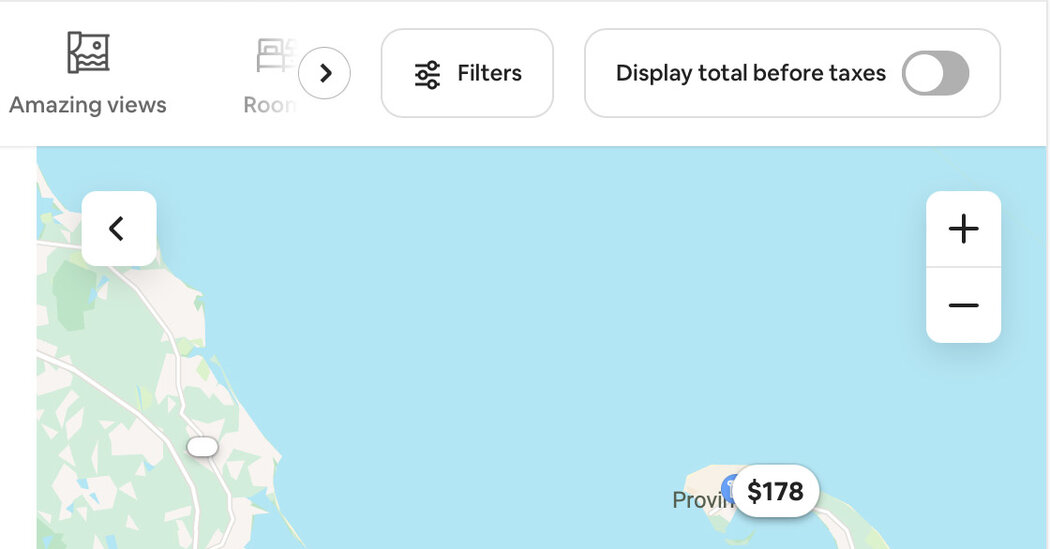In California, Hotels and Rentals Must Reveal Fees Upfront. What Does That Mean for You?

Last May, Samir Bhavnani, a 47-year-old tech executive from San Diego, was planning a trip to Palm Springs, Calif., where he planned to propose to his girlfriend. He found the perfect spot on Vrbo: It offered a “spa in a grotto,” a slide and a swim-up bar and had plenty of five-star reviews.
He decided to book two nights, at $595 a night. But somehow, the total came to about $2,300.
“And $595 plus $595 doesn’t equal $2,300,” Mr. Bhavnani said. “Taxes, host fees and service fees basically doubled the price. I asked the owner what the fee breakout was, and they said it was $300 for cleaning and $300 for ‘air-conditioning.’ This is Palm Springs. I expect every place to have air-conditioning like they have running water.”
Soon, if you’re booking a place to stay in California — whether you live in the state or not — this kind of sticker shock from hidden, or “junk,” fees will be far less likely to spoil your trip.
On July 1, a sweeping new state law will ban hidden fees on purchases — including event tickets, hotel rooms and food delivery services — by requiring businesses to include all mandatory fees or last-minute charges in their advertised and displayed price.
In short, “the price Californians see will be the price they pay,” Rob Bonta, the state’s attorney general, said in a statement in October, when Gov. Gavin Newsom signed the bill.
A second law, also taking effect July 1, specifically targets the sometimes hefty hidden resort and cleaning fees at hotels.
